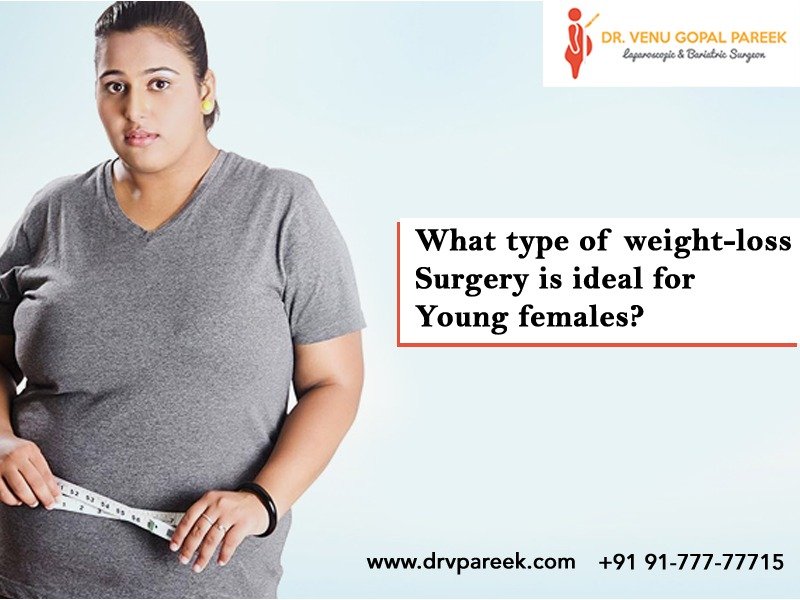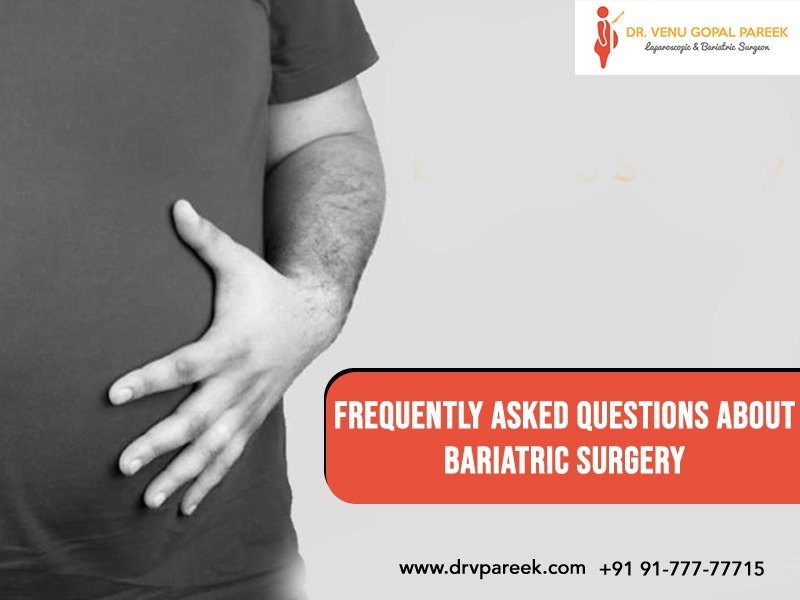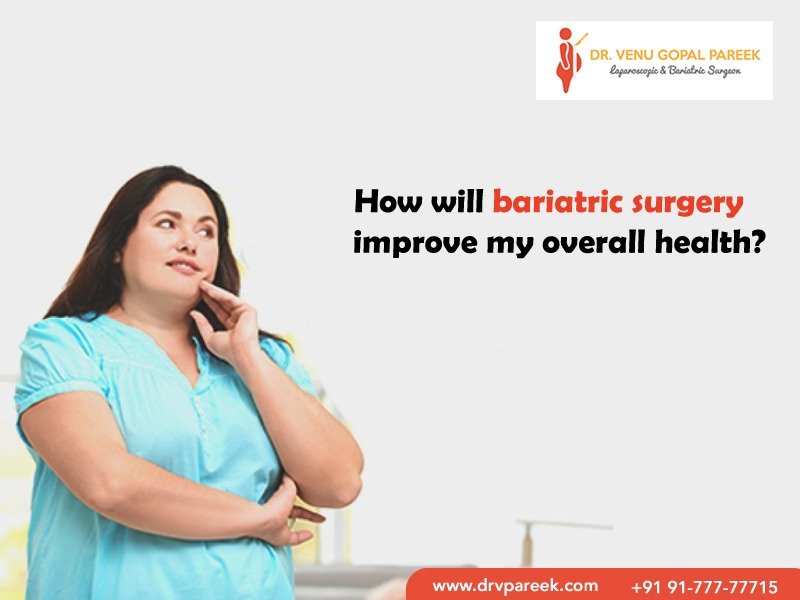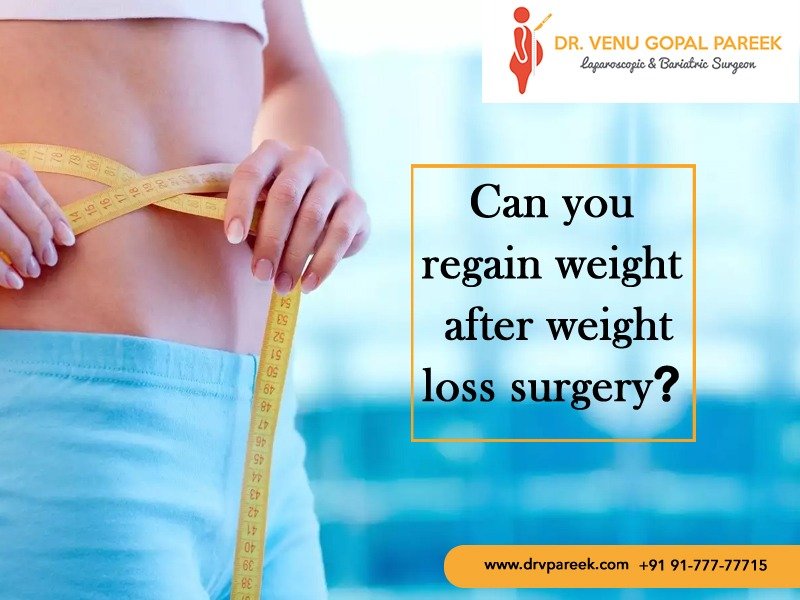
What type of weight-loss surgery is ideal for young females?
Obesity, a silent pandemic, is not only found in adults or the elderly. Do you know that childhood and adolescent obesity is becoming quite common across the globe? As high as 17% of children and adolescents aged 2 to 19 are obese. But one might think, what can happen? With growing age, they will naturally lose weight and become fit. Not quite right, if left unaddressed, children and teens may face depression, issues with self-image, low self-esteem, menstrual problems, headaches, sleep apnea, liver inflammation and insulin resistance. They can quickly become pre-diabetic.
Under what circumstances are weight loss surgeries considered for an adolescent?
Weight loss surgery is not recommended for every teen. The family should try to change the lifestyle of the adolescents and shift them towards healthy eating habits. They should make exercise a part of their daily routine. Even if the teen undergoes weight loss surgery, if they do not adapt to this new life after the surgery, they will regain all the weight loss due to surgery.

In rare cases, when there are critical health complications and a BMI greater than 35, weight loss surgery is opted. Even then, the doctor should spell out life after the surgery. They should also set realistic expectations for the family and the teen.
Below are the guidelines from the American Society for Metabolic and Bariatric Surgery regarding weight loss surgery for adolescents:
- Under proper medical guidance, there were six or more failed organized attempts at weight management.
- The adolescent is closer to physical maturity, which is age 14 or older for girls and 15 or older for boys.
- BMI is greater than 35 kg/m², and suffering from obesity-related problems, or have a BMI of greater than 40 kg/m² and have obesity-related problems.
- The adolescent is ready for medical and psychological evaluations, both pre and post the surgery.
- Adolescents who have physically matured should agree not to get pregnant for a least 18 months after surgery. After rapid weight loss, pregnancies are complicated since the mother loses nutrients after weight loss surgery.
- Be mentally prepared to adhere to the bariatric diet after the operation. After the gastric bypass surgery, the patient’s diet is very low-calorie, low-carbohydrate, high-protein. Long term usage of multivitamins, calcium, vitamin B12 folate, thiamine and iron (for menstruating females) is necessary.
- Understand the risks of surgery and weigh them against the potential benefits, and age is not a limiting factor mostly.
- Having a supportive family and friendly environment.
Who is not suited for weight loss surgery?
- If obesity-related medical issues can be cured by any other means.
- If they are addicted to alcohol, drugs within a year.
- If the patient is not willing to fully adapt to the modified life and thus putting themselves at the risk of weight regain and other health issues.
- Those who have failed the psychological evaluation done before the surgery.
What are the weight loss surgeries performed for a teenager/adolescent?
Out of all the various kinds of surgeries, Roux-en-Y gastric bypass, Sleeve gastrectomy and Adjustable gastric banding are preferred for teens.
Roux-en-Y gastric bypass

This is a Laparoscopic procedure where the size of the stomach is reduced into a small pouch. The food is routed through a “Roux “limb of the small bowel before it joins with the digestive juices. The food does not enter into the rest of your stomach and the top part of your small intestine. Hence the absorption of fat and calories from the foods you eat is reduced. You’ll feel fuller much quickly in just a few bites. This is how this method achieves substantial weight loss.
Sleeve gastrectomy
Laparoscopic Sleeve Gastrectomy(LSG) is a new procedure with less risk factors and is also known as vertical sleeve gastrectomy or gastric sleeve procedure. To restrict the food intake the outer margin of the stomach is removed, leaving a sleeve of the stomach which looks like a banana in both shape and size. Unlike other bariatric surgeries, this procedure does not cause malabsorption. The sleeve gastrectomy is simple with low recurrence so the patient does not need revision procedure down the line.
Adjustable gastric banding
In Laparoscopic adjustable gastric banding (LAGB), using small incisions in the upper abdomen an adjustable band is placed around the top part of the stomach. This creates a very small stomach pouch which means that you’ll feel full after eating less food which helps in weight loss.
So it is evident that in all the above procedures the main aim is to restrict the food intake.
What is the pre-surgical process for weight loss surgery chosen?
Starting with physical examination and counselling, a series of tests are done to determine if you are a good candidate for bariatric surgery. They include:
- Tests to detect type 2 diabetes, i.e. Fasting glucose and haemoglobin A1C measurement.
- Liver and thyroid function tests
- Blood cholesterol and complete blood tests
- Pregnancy tests
- Sleep study to detect any obstructive sleep apnea
- Bone age x-ray assessment to know the degree of skeletal maturity
- The patient should quit smoking and drinking for at least a month and start following the surgeon’s diet chart.
What happens after weight loss surgery?
Recovery starts with physical recovery and then adjusts to a new diet and exercise regime.

At first, a liquid diet is started, then the patient moves on to pureed foods, and within 4-6 weeks, the patient is given solid food. They should not lift heavy weights or go to the gym for about a month.
What are the benefits of bariatric surgery for adolescents?
Below are some of the benefits of bariatric surgery for adolescents:
- Treatment for teenage type 2 diabetes: As discussed earlier, teens who had untreatable levels of type 2 diabetes only were selected for weight loss surgery. It was observed that 95% of teens could maintain normal blood sugar levels for three years after the surgery. However, will diabetes come back in later years is a question that remains to be answered?
- Enhanced self-image and Weight change: Around 26-28 per cent of adolescents had reduced 80 to 90 pounds on average. Gastric bypass procedure showed better results when compared to sleeve gastrectomy. The weight loss continues for many years after the surgery, provided the adolescent pays attention to the directions given by the treating surgeon per post-surgical care.
- Reduced Liver disease: Obesity causes non-alcoholic fatty liver disease, and weight loss surgery improved this condition.
- Active social life: Adolescents and teens can now participate in their favourite sport and cultural activities like dance etc. This not only improves their social life but also works as an exercise.
In a nutshell, teens and their families should understand that before thinking about weight loss surgery, they should think about alternative methods of losing weight. If they are suffering from any chronic illnesses, they should talk to the treating doctor and see if there are other non-surgical options to cure their illness. Even if they have to undergo surgery, they should clearly understand the risks of weight loss surgery and have an honest conversation with the surgeon. Dr V Pareek is a pioneer in this field and does not suggest surgery unless absolutely required. End to end care team at Dr V Pareek’s hospital will work with you to understand your weight-loss goals and help you weigh in the pros and cons of the weight loss surgery.







